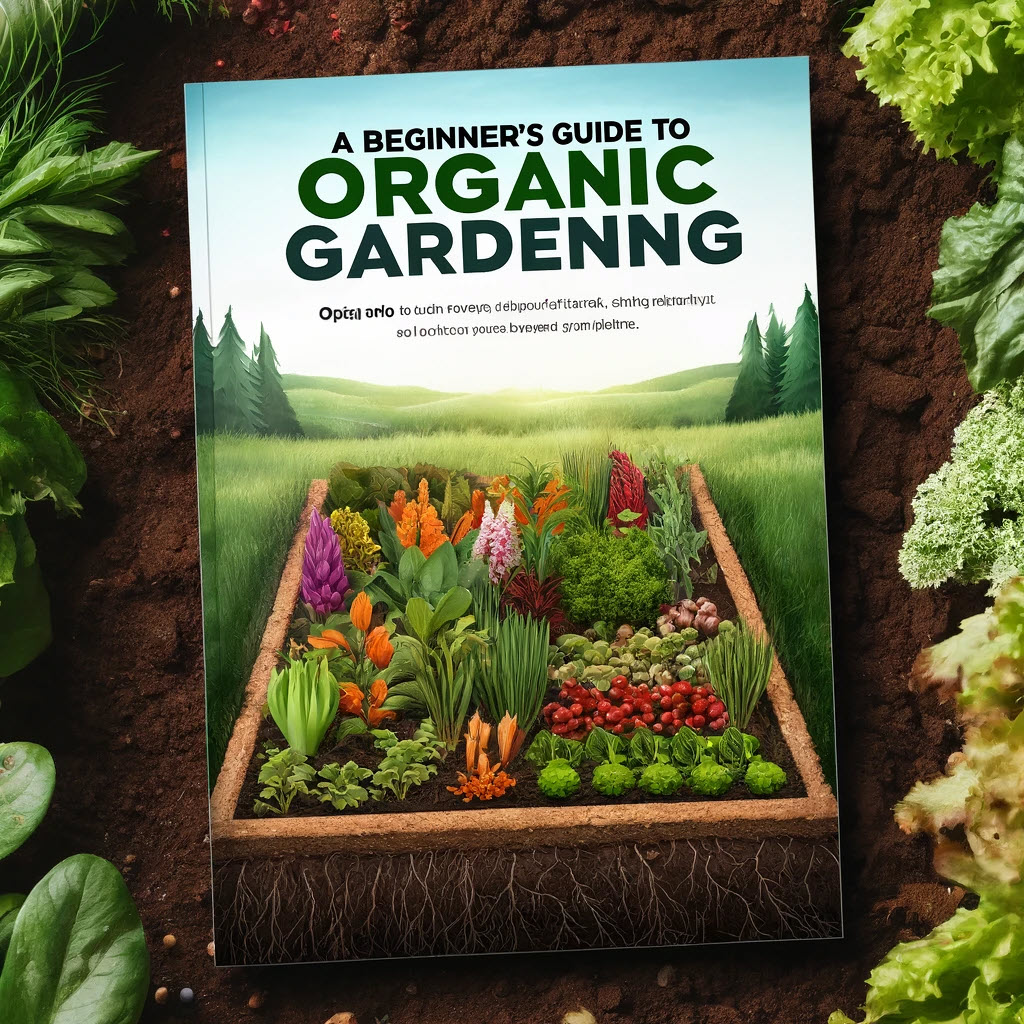
Welcome to the Organic Gardening Report!
Introduction: Improving Soil Health and Fertility
For beginning gardeners embarking on the journey of cultivating their own organic garden, one of the primary goals is to improve soil health and fertility. The foundation of a successful garden lies in the quality of the soil it is grown in. Healthy, fertile soil provides essential nutrients to plants, supports beneficial microbial activity, and helps plants thrive.
However, achieving optimal soil health and fertility can present challenges for gardeners, especially those new to organic gardening practices. Factors such as soil composition, nutrient levels, pH balance, and the presence of pests or diseases can all impact the ability of soil to support robust plant growth.
In this report, we will explore the importance of improving soil health and fertility in an organic garden and discuss potential complications that may arise in the process. By understanding these challenges, beginning gardeners can be better equipped to address them and create a thriving organic garden.
Soil health is the foundation of successful organic gardening. Understanding the importance of soil health is crucial for beginners looking to improve soil fertility and grow healthy plants. Healthy soil is teeming with life, including beneficial bacteria, fungi, earthworms, and other organisms that work together to create a balanced ecosystem.
One key aspect of soil health is its structure. Well-structured soil allows for proper aeration, drainage, and root penetration. Organic matter, such as compost and mulch, plays a vital role in improving soil structure by enhancing its ability to retain moisture and nutrients.
Additionally, healthy soil provides essential nutrients for plants to thrive. Organic gardening focuses on building soil fertility through natural means, such as composting, cover cropping, and using organic fertilizers. This creates a sustainable cycle where plants feed the soil, and the soil, in turn, nourishes the plants.
By nurturing soil health in your organic garden, you can create a thriving environment where plants can grow vigorously, resist pests and diseases, and produce nutritious harvests. Understanding and prioritizing soil health is the first step towards achieving a successful and sustainable organic garden.
Before you begin improving the soil health and fertility of your organic garden, it's crucial to understand the current state of your garden soil. By conducting simple tests, you can gain valuable insights into its composition and identify areas for improvement.
Here are some straightforward tests you can perform to assess your garden soil:
1. Texture Test: Take a handful of soil and squeeze it. If it forms a tight ball that doesn't crumble easily, it likely has a high clay content. If it falls apart immediately, it may be sandy. A soil that holds together but crumbles easily is ideal, indicating a good balance of sand, silt, and clay.
2. pH Test: Use a pH testing kit to determine the acidity or alkalinity of your soil. Most plants prefer a slightly acidic to neutral pH level (around 6.0 to 7.0), but this can vary depending on the types of plants you intend to grow.
3. Drainage Test: Dig a small hole in your garden and fill it with water. If the water drains slowly, your soil may have drainage issues. Good drainage is essential for healthy plant growth, as waterlogged soil can lead to root rot.
4. Organic Matter Test: Assess the amount of organic matter in your soil by its color and texture. Dark, crumbly soil rich in organic matter is generally fertile and healthy for plants. Light-colored or compacted soil may lack essential nutrients.
By performing these simple tests, you can gain a better understanding of your garden soil's current condition and make informed decisions on how to improve its health and fertility for successful organic gardening.
Techniques for Improving Soil Fertility Naturally
Improving soil fertility naturally is essential for the success of your organic garden. Here are some techniques to help you achieve this:
1. Composting: Composting is a fantastic way to recycle organic matter and improve soil fertility. Collect kitchen scraps, yard waste, and other organic materials to create a compost pile. Over time, the materials will break down into nutrient-rich compost that can be added to your garden beds.
2. Mulching: Mulching not only helps retain moisture in the soil but also adds organic matter as the mulch breaks down. Use materials like straw, leaves, grass clippings, or compost as mulch around your plants. This will gradually enrich the soil and improve its fertility.
3. Cover Cropping: Planting cover crops, such as clover or alfalfa, during the off-season can help improve soil fertility. These plants add nutrients to the soil, prevent erosion, and help suppress weeds. When the cover crops are tilled back into the soil, they enrich it with organic matter.
4. Crop Rotation: Rotating your crops each season can help maintain soil fertility. Different plants have varying nutrient needs, so rotating crops helps prevent depletion of specific nutrients in the soil. This practice also helps reduce the buildup of pests and diseases.
By incorporating these techniques into your gardening routine, you can naturally improve soil fertility and create a healthy environment for your plants to thrive.
One of the key ways to improve soil health and fertility in your organic garden is by integrating composting and mulching practices. Composting involves breaking down organic matter like kitchen scraps, leaves, and yard waste into nutrient-rich soil amendment. This process not only enriches the soil with essential nutrients but also helps retain moisture and improve soil structure.
To start composting, designate a composting area in your garden or use a compost bin. Layer green materials (nitrogen-rich) such as fruit and vegetable scraps, grass clippings, and coffee grounds with brown materials (carbon-rich) like dried leaves, straw, and shredded paper. Turn the compost regularly to aerate it and speed up the decomposition process.
Once your compost is ready, incorporate it into your garden soil to provide a natural source of nutrients for your plants. The addition of compost helps enhance microbial activity in the soil, leading to better nutrient uptake by plants and improved soil fertility over time.
In addition to composting, mulching is another effective way to boost soil health. Mulching involves covering the soil surface around your plants with a layer of organic material like straw, wood chips, or grass clippings. Mulch helps conserve moisture, suppress weeds, regulate soil temperature, and add organic matter to the soil as it breaks down.
By integrating composting and mulching practices into your organic gardening routine, you can create a sustainable and thriving garden ecosystem that promotes soil health and fertility naturally.
In order to maintain healthy soil in the long term, there are several key tips that beginning gardeners should keep in mind:
1. Rotate Crops: Rotating your crops each season helps prevent soil depletion and nutrient imbalance. Different plants have different nutrient needs, so rotating them can help maintain soil fertility.
2. Compost Regularly: Adding compost to your soil regularly helps replenish nutrients and improve soil structure. Compost also encourages beneficial microorganisms that contribute to soil health.
3. Mulch: Applying mulch to your garden beds helps retain moisture, suppress weeds, and regulate soil temperature. Organic mulches like straw, leaves, or grass clippings also break down over time, enriching the soil.
4. Avoid Over-Tilling: Excessive tilling can disrupt the natural structure of the soil and harm beneficial organisms. Minimize tilling and opt for no-till or low-till methods to protect soil health.
5. Test Soil Regularly: Periodically test your soil to monitor pH levels and nutrient content. This information can help you adjust your gardening practices and ensure that your plants have the necessary nutrients for healthy growth.
By following these tips and consistently caring for your soil, you can improve its health and fertility over time, creating a thriving environment for your organic garden.
Wrapping Up: Enhancing Soil Health and Fertility
As you embark on your journey as a beginning gardener delving into the world of organic gardening, it is essential to keep in mind the overarching goal of improving soil health and fertility within your garden. By nurturing and enriching the soil, you are laying the foundation for bountiful harvests and sustainable gardening practices.
Remember that healthy soil is the key to successful organic gardening, providing essential nutrients to your plants and fostering a thriving ecosystem underground. Through the techniques and strategies outlined in this report, you have learned how to create a rich and fertile environment that will support the growth of your plants naturally.
If you ever feel the need to revisit the information presented here, I encourage you to review this report to refresh your knowledge and continue your learning journey. Additionally, for those eager to delve deeper into the world of organic gardening, consider exploring an online course dedicated to starting and maintaining an organic garden.
By prioritizing soil health and fertility in your gardening endeavors, you are not only cultivating a vibrant and productive garden but also contributing to a more sustainable and eco-friendly approach to gardening. Embrace the principles of organic gardening, and let your passion for nurturing the earth guide you in creating a beautiful and thriving garden sanctuary.
